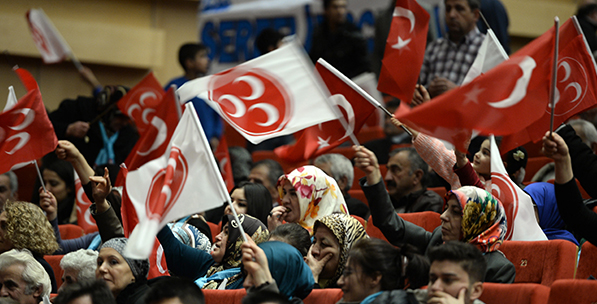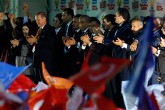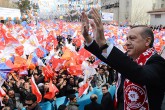Observers from all political backgrounds agree that the developments that dominated the public debate in Turkey since Dec. 17, 2013, represent both a criminal case and a political operation. While the courts continue to deal with the controversy’s judicial implications, public opinion and the media concentrate on the operation’s political motivations and its covert connections.
First and foremost, the majority of Turkey’s population identifies the Dec. 17 process as an attempt to establish a new bureaucratic guardianship over civilian politics.
Regardless of what we call the power circles – some prefer “parallel” or “deep” state – behind the most recent attacks against the government, there is no doubt that we are faced with a complex organization whose game plan involves planned steps from law enforcement and the judiciary among other key government institutions.
Another reason why public debate revolves around the Dec. 17 operation’s political implications at the expense of the corruption allegations has been the Gülen Movement’s unmistakable efforts to prevent the elected government from running the country and to target the administration’s legitimacy as a self-proclaimed, unelected authority. Most recently, a list of 7,000 journalists, intellectuals and political activists revealed on Feb. 24 attested to the scope and depth of the Gülenist witch hunt that currently manifests itself in a series of leaked phone calls.
Despite such grave developments, we must nonetheless focus our attention on the question that matters most: Does the Gülen Movement’s crusade against Recep Tayyip Erdoğan’s government appeal to the general public?
Polling data released by various companies since Dec. 17 indicate that the AK Party has either maintained its previous level of support or lost two to three percentage points. In other words, it would appear that major political developments such as last summer’s Gezi Park protests and the most recent operation have only a minor effect on the ruling party’s electoral support. As such, polling data indicates that the voters do not regard the opposition parties as meaningful alternatives to the AK Party despite major challenges to the latter’s rule in recent months. Interestingly enough, the Nationalist Movement Party (MHP) that competes with the AK Party over conservative and nationalist voters in the Anatolian countryside also failed to capitalize on perceived weaknesses of the ruling party. At least three structural factors would help explain this peculiar phenomenon.
Primarily, the AK Party successfully moved away from countryside conservatism – which it shares with the MHP – at the national level especially since the 2007 elections. Such differentiation in national politics significantly weakened the MHP’s potential as a competitor. Let us elaborate:
Since the 2007 parliamentary elections, the government challenged the traditional balance of power between civilian politics and the military establishment. In addition, it made significant progress toward the Kurdish question’s peaceful resolution and sought to develop a new type of foreign policy that would involve Turkey more directly in regional and global affairs. Such efforts effectively left nationalist voters, whose numbers have regularly declined over the same period, confused about the ruling party. In contrast, the same reformist policies received a heartfelt welcome from AK Party voters in the same areas where conservatives rewarded the government for shouldering the political risk of tackling the country’s chronic problems. In other words, the Erdoğan administration’s ability to portray itself as a problem solver overweighed the nationalist sentiment that the ruling party compromised its conservative values for political gain. In this sense, nationalist constituents in the Anatolian countryside are likely to identify the Dec. 17 operation as an attack against the AK Party government and – by extension- against their political demands and representatives. The
In this article
- Domestic Policy
- Opinion
- 2007
- 2013
- December 17
- Election
- Elections
- Istanbul
- Kurdish Community
- Kurdish Question
- May 28-August 20 2013 The Gezi Park Protests
- NATO
- Opposition
- Recep Tayyip Erdoğan
- taksim
- The President of the Republic of Türkiye
- Turkish Local Elections
- Turkish President
- Türkiye's Justice and Development Party | AK Party (AK Parti)
- Türkiye’s Nationalist Movement Party (MHP)
- United States (US)



